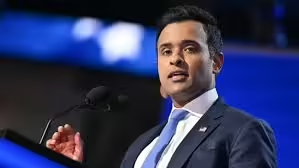
By Michael Specter
In a significant move to combat global plastic pollution, India proposed the creation of a multilateral fund at the fifth session of the Intergovernmental Negotiating Committee (INC) in Busan, South Korea. The proposal is aimed at supporting developing nations in their efforts to address plastic waste by offering grants and facilitating the transfer of environmental technologies. This initiative comes as part of the ongoing negotiations for a legally binding international instrument on plastic pollution under the Montreal Protocol.
Addressing the Global Plastic Crisis
Plastic pollution is a growing global crisis, with millions of tonnes of plastic waste leaking into aquatic ecosystems each year, affecting oceans, rivers, and lakes. According to the United Nations Environment Programme (UNEP), around 19-23 million tonnes of plastic waste are dumped into these ecosystems annually. As a result, ecosystems suffer severe damage, disrupting habitats and reducing their ability to adapt to climate change. The plastic waste also impacts millions of livelihoods, food production, and social well-being.
At the United Nations Environment Assembly (UNEA) in 2022, a historic resolution was adopted to address plastic pollution, mandating the INC to draft a legally binding international instrument on plastic pollution, with negotiations set to conclude by 2024.

India’s Proposal for Financial and Technical Support
India’s proposal emphasizes the need for a robust financial mechanism to support developing countries in their efforts to tackle plastic pollution. The proposed multilateral fund would provide grant-based financial assistance to these nations, with developed countries bearing the incremental costs of transitioning to environmentally friendly technologies. Additionally, the fund would include technology transfer to help developing countries meet the agreed-upon measures in the international instrument.
Under the proposal, developed countries would be required to periodically replenish the fund, and private sector funding could also be accepted based on agreed modalities. This collaborative funding model is designed to ensure that developing nations can transition to sustainable practices without bearing the full financial burden themselves.
Establishing Governance and Operational Guidelines
A key component of India’s proposal is the establishment of a subsidiary body with equal representation from both developed and developing countries. This body would be responsible for setting operational policies, guidelines, and administrative arrangements, including the disbursement of resources. The governing body of the new instrument would determine the list of incremental costs covered by the fund, ensuring that developing countries receive the necessary support for their compliance efforts.
The proposal draws on the successful model used under the Montreal Protocol, which has been operational for years to address ozone-depleting substances. India’s suggestion to use a similar approach for plastic pollution is seen as a practical and effective way to drive global action against this pressing environmental issue.
Finalizing the Agreement
The negotiations at the INC session in Busan, running from November 25 to December 1, are the final planned meetings before the international instrument on plastic pollution is expected to be concluded. India’s proposal for a multilateral fund is seen as a critical step toward achieving the objectives of the new instrument and ensuring that all nations, particularly developing ones, are supported in their efforts to reduce plastic pollution.
The negotiations are set to culminate by 2024, and the successful implementation of the multilateral fund could mark a major milestone in the global fight against plastic waste, with India playing a central role in facilitating international cooperation.


